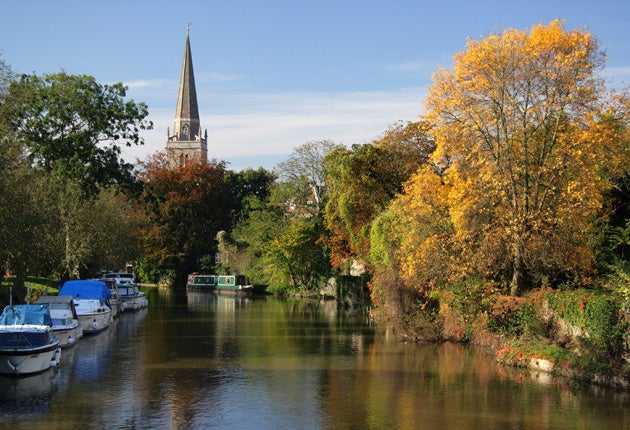Oxford locals in fresh battle to stop Thames' giant reservoir

Your support helps us to tell the story
From reproductive rights to climate change to Big Tech, The Independent is on the ground when the story is developing. Whether it's investigating the financials of Elon Musk's pro-Trump PAC or producing our latest documentary, 'The A Word', which shines a light on the American women fighting for reproductive rights, we know how important it is to parse out the facts from the messaging.
At such a critical moment in US history, we need reporters on the ground. Your donation allows us to keep sending journalists to speak to both sides of the story.
The Independent is trusted by Americans across the entire political spectrum. And unlike many other quality news outlets, we choose not to lock Americans out of our reporting and analysis with paywalls. We believe quality journalism should be available to everyone, paid for by those who can afford it.
Your support makes all the difference.A row over the construction of a £1bn reservoir the size of Heathrow airport is set to be reignited today at the opening of a public inquiry into the proposals.
Thames Water, the company which supplies drinking water to London, wants to site the reservoir on 5,000 acres of Oxfordshire farmland but is being opposed at the inquiry by a coalition of local people and environmentalists, who say it is unnecessary and would not provide value for money.
Thames Water says the new project, which would be situated near Abingdon and was first proposed in 1990, will become vital from about 2025 onwards, because of increased water demand caused by climate change, population growth, and new European environmental legislation which will make it more difficult to abstract water from rivers.
Until then, it says, it will be able to meet higher demand by reducing leakage rates – for which the company has been fiercely criticised in the past – the use of water metering, and other water efficiency measures. But it has calculated that in 15 years' time it will need a major new water resource, which the reservoir would provide.
The new project would be the first big reservoir to be built in Britain since Kielder Water in Northumberland in the 1980s. Abingdon would not be as big as Kielder, but with a capacity of 100 million cubic metres of water, it would still be four times the size of the Thames Water's current biggest reservoir, Farmoor. Besides taking up a substantial area of farmland, the company admits it would swallow up "about 20" homes.
Opponents of the scheme, organised as the Group Against Reservoir Development (GARD) and supported by local councils and the Campaign to Protect Rural England, say the new project will push up water bills as the costs of construction will be passed on to consumers. They argue that cheaper and more sustainable alternatives are available, such as a Severn-Thames water transfer scheme which could, they say, provide just as much water at half the cost.
The project is also opposed by the local MP, Ed Vaizey, the member for Wantage and currently Minister for Culture, Communications and Creative Industries. "The reservoir has been a running sore in my constituency for 20 years," Mr Vaizey said. "It is still a case of David against Goliath as the local councils have had to fight this issue with barely any resources.
"The reservoir wouldn't just affect me and my constituents – it would have a knock-on effect on the constituents of MPs in the Thames Water region, around 8.5 million people. What this inquiry needs to do is investigate whether there are viable alternatives, and force Thames Water to investigate them."
The inquiry, in Oxford, is examining Thames Water's Water Resources Management Plan (WRMP) which sets out the company's strategy from 2010-2035. The plan was "called in" by the previous Labour Environment Secretary, Hilary Benn, who ordered the inquiry, and after a five-week examination the inspector will report to Mr Benn's Conservative successor, Caroline Spelman. If Ms Spelman gives the go-ahead, work could start on construction by about 2016.
"Our customers have told us they do not want us to take any risks with the security of their water supply," said Martin Baggs, Thames Water's CEO. "The drought we experienced in 2005 and 2006 was too close for comfort. We have to act now to ensure we can meet our customers' needs."
Join our commenting forum
Join thought-provoking conversations, follow other Independent readers and see their replies
Comments